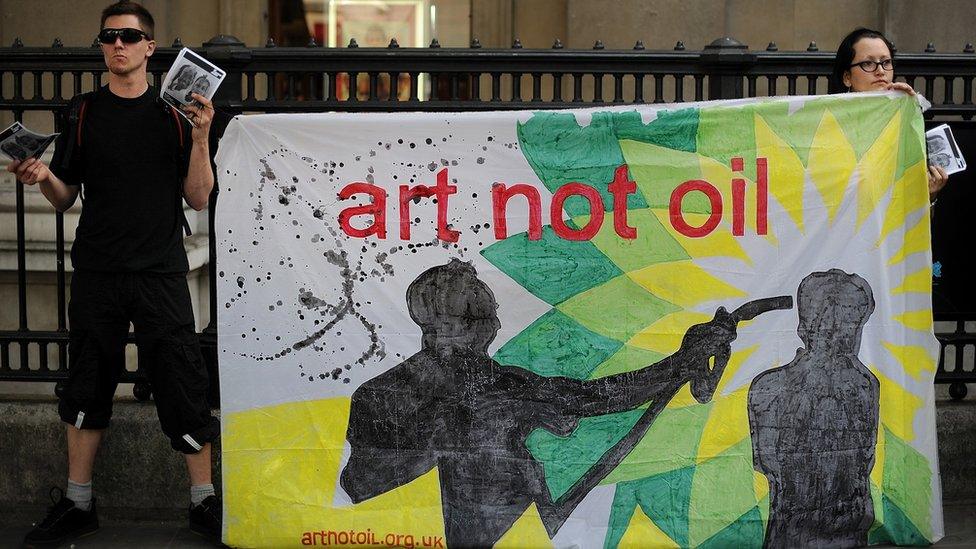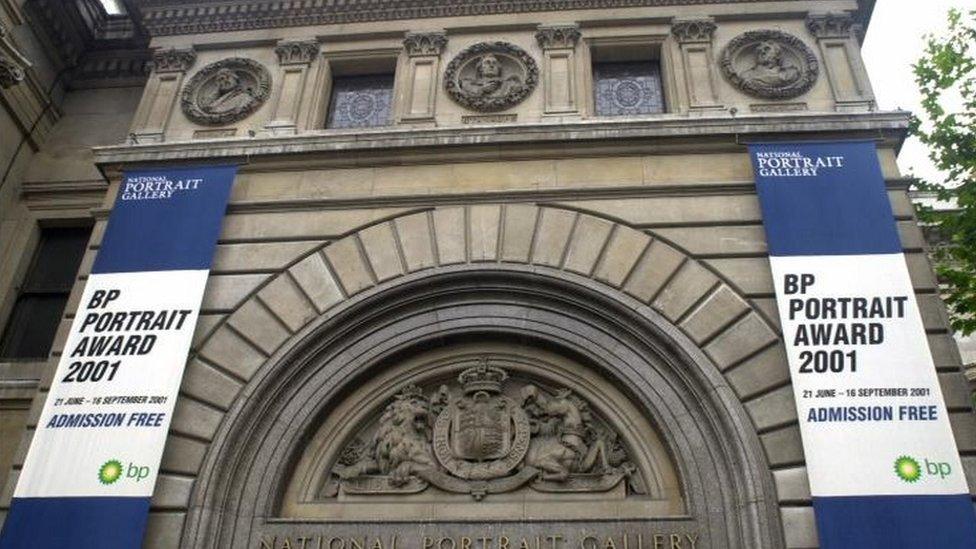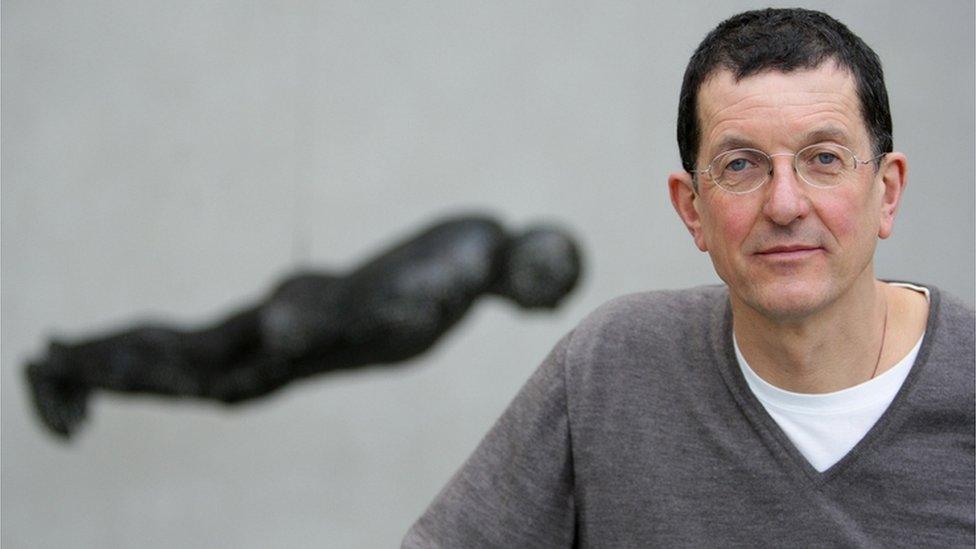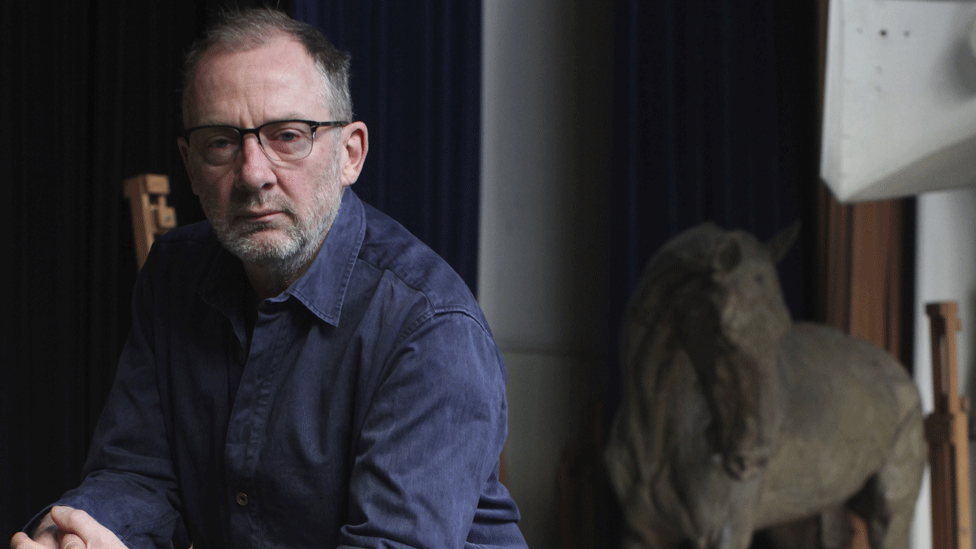National Portrait Gallery's BP sponsorship to end
- Published

Protests, such as this one in 2011, have been held outside the gallery's award ceremony
Energy giant BP's sponsorship of the National Portrait Gallery is to end, following years of protests against the funding.
BP has backed the gallery's prestigious portrait prize for more than 30 years.
In 2019, past winners were among the artists who called on the gallery to cut ties with the firm, and protesters covered themselves in oil at the venue.
Pressure group Culture Unstained called the news "a major win for the campaign against fossil fuel sponsorship".
National Portrait Gallery director Nicholas Cullinan said he was "hugely grateful to BP for its long-term support" of the award.
The funding has "fostered creativity, encouraged portrait painting for over 30 years and given a platform to artists from around the world, as well as providing inspiration and enjoyment for audiences across the UK", he said.
The BP Portrait Award is not being staged in 2021 and 2022 while the London gallery is closed for redevelopment. The funds are instead being used for the gallery's other work ahead of its re-opening next year.
The sponsorship will end in December, when the current contract expires. BP said it would look for "new ways to best use our talent, experience, and resources" as it tried to achieve its target of becoming net-zero by 2050.

The portrait prize and its annual accompanying exhibition began in 1980
It's not clear how the competition will be funded in the future, with arts organisations and corporations tightening their belts due to the pandemic.
The sponsorship came under scrutiny in 2019, when Gary Hume, an artist and judge of that year's portrait award, said it was time to look elsewhere for money. Hume told BBC Radio 4's Today programme that BP "was now a problem".
Dozens of other artists, including Sir Antony Gormley, Anish Kapoor, Sarah Lucas and Rachel Whiteread, signed a letter, external asking the gallery to end the sponsorship deal because of "BP's role in furthering the climate crisis".
Semi-naked protestors also made their views clear when they drenched themselves in oil, external at the gallery in October 2019.
The Royal Shakespeare Company (RSC) and BP ended their partnership in 2019, while BP and The Tate cut ties in 2017. The firm still sponsors the British Museum and the Royal Opera House.
BP executive Louise Kingham said on Tuesday: "We are immensely proud of our role in championing British arts and culture for over 30 years, but the BP of today is a very different company from when we first started our partnership with the National Portrait Gallery."
BP has pledged to reduce its reliance on fossil fuels and become an "integrated energy company".
Culture Unstained co-director Jess Worth said: "While the gallery won't say it out loud, this is clearly a vote of no confidence in BP's business. The company spent 30 years painting a picture of itself as a responsible philanthropist but it is rapidly running out of places to clean up its toxic image."
The National Portrait Gallery's portrait award is arguably the world's most prestigious such prize.
The last winner was Brighton-based artist Charlie Schaffer, who won 2019's £35,000 first prize for his portrait of a close friend, titled Imara In Her Winter Coat.
Related topics
- Published12 November 2019
- Published6 July 2019

- Published10 June 2019
